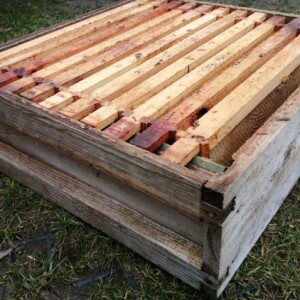Ups and Downs
In a game of word association, if someone said "zenith", I think I would react with "sun". On the other hand, if they said "nadir", I'm not so sure, I might well say something like "depression"
In science and astronomy zenith and nadir mean, respectively, directly above and directly below an observer. Zenith has a secondary meaning of the highest point in the sky that something (sun, moon, planet etc) reaches - there is not a real opposite (nadir) in this sense, only a theoretical point somewhere below the horizon
We have co-opted the terms as metaphors in ordinary speech: a high point and a low point in some endeavour: The United States Empire has passed the zenith of its power. Complicity in the invasion of Iraq was a nadir in British foreign policy
It is not a given that PV panels will generate maximum power when the sun is at its zenith. The compass direction they are pointing and the angle of the roof must be considered - and any local shading. But my guess is that these ones will, as they are pointing more or less south. They were installed today on the brewery's Grade II listed stable roof, and will give me a little fillip every morning when I see the them while I'm getting dressed
We also have 'super-' and 'sub-' at our disposal for above and below. Occasionally used as abbreviations (super[intendent]; sub[marine]), but otherwise not usually used alone. Except by beekeepers! In the beekeeping lexicon, a 'super' is a relatively shallow box of frames that is placed at the upper part of the hive, for the bees to store honey in and us to harvest. It is distinguished from the deeper 'brood box(es)' in which the queen lays eggs and the colony rear their young. Most beekeepers separate the brood area from the supers with a 'queen excluder' that does what it says on the tin
But this is where it gets (linguistically) ugly. Just as beekeepers have adopted the prefix 'super' as a noun, they have adopted the noun 'nadir' as a verb! So, in the autumn we 'nadired some supers' and today we have been removing the 'nadired supers' (well, one of them - the one in the extra) from the hives. It's language so awful, it's poetic!
To explain, there are always some super frames we choose not to harvest in late summer. These are left in a super, which is placed underneath the brood, rather than on top, for the winter. Queen excluders are always removed for the winter - the whole colony, with the queen, ranges where it will. The colony consumes the honey from the super in the winter but then moves upwards into the brood area, where it is warmer, and that is where the brood will begin to expand now that spring is here. The empty, more-or-less abandoned super can be removed, and relocated above a queen excluder (thankfully, we don't call this 'zenithed') , when the oilseed rape starts flowering in a couple of weeks time and the PV panels are pumping out an increasing quantity of energy


Comments
Sign in or get an account to comment.


